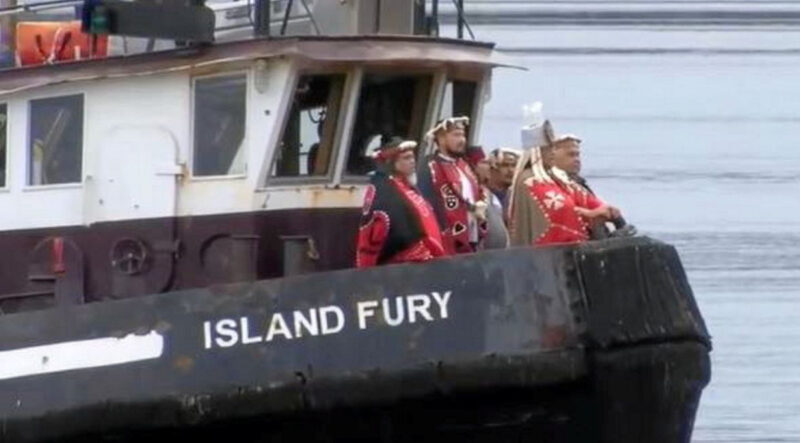Coalition opposes facilitator for salmon farming transition plans
“We cannot trust that an impartial process will occur as the First Nations Fisheries Council’s stance against salmon farming is well known,” say aquaculture-dependant indigenous communities in British Columbia
By Fabian Dawson
SeaWestNews
Aquaculture-dependant First Nations in British Columbia are worried that the cards are stacked against them in the recently announced engagement plan by the Federal Government to transition away from open-net salmon farming on Canada’s west coast.
The Coalition of First Nations for Finfish Stewardship (FNFFS) is also asking that the consultation process for the Open Net-Pen Transition Plan be extended into 2024 to ensure “proper, respectful engagement” with each Nation.
The discussion framework announced last Friday by the Department of Fisheries and Oceans (DFO) involves a phased engagement approach which will invite First Nations, the aquaculture sector, B.C. communities, academia, and conservation organizations to provide feedback as to what should be included in an open-net pen transition plan.
The input and feedback received during these engagement sessions will be instrumental in the development and implementation of the open-net pen transition plan, expected to be finalized in the Spring of 2023.
The Coalition said the inclusion of the First Nations Fisheries Council (FNFC) to facilitate some of the engagement sessions is problematic claiming the organisation is opposed to salmon farming.
“We cannot trust that an impartial process will occur, as the FNFC’s stance against salmon farming is well known,” the Coalition said in a statement.
“As such, our Coalition will continue its own transition communication, planning, and engagement with member Nations, the sector, and both the provincial and federal governments to ensure a fair transition process takes place,” the statement said.
The FNFC states it is a group that builds processes, capacity, and relationships to help First Nations in BC influence the integrated planning and management of Pacific fisheries and aquatic resources at the province-wide level.
It did not respond to media inquiries by SeaWestNews on its stance on salmon farming in BC.
The Coalition said several of its member First Nations have already begun asserting their rights to farm salmon and have plans to take over fisheries and aquaculture licensing in their traditional territories.
It also wants the consultation period extended.
“Considering the weight of the potential impact this transition plan will have economically and socially on our communities, and the busy fishing season in the coming months for our people, our Coalition Nations call on DFO to extend the consultation process for the Open Net-Pen Transition Plan into 2024 to ensure proper, respectful engagement for each Nation occurs,” it said.
The Coalition said it is “cautiously optimistic about the federal government’s next steps to engage with First Nations on the future of finfish farming.”
“We are encouraged to see how many of our concerns, input, language, and socio-economic data have been woven into the fabric of this Framework.
“Of particular interest is the federal government’s recognition of the importance of our salmon farming partnerships, and how they directly impact the economic and social health of our communities in the form of good, meaningful jobs; benefit agreements with the sector; Indigenous-owned businesses working in salmon farming; and in some instances, First Nations’ tenure (marine lease) ownership. We also appreciate the formal acknowledgement of our push for more Indigenous-led research, monitoring, oversight, and management of aquaculture and wild salmon conservation in our territories.”
The Coalition has invited Federal Fisheries Minister Joyce Murray to meet with its members to discuss processes further, as well as to seek clarifications on the engagement process for the transition plan.
Ottawa has acknowledged First Nations’ rights to define their relationships with the aquaculture industry and has placed indigenous interests and reconciliation at the centre of a discussion framework, which outlines a proposed vision for open-net pen transition in British Columbia.
It comes after several court decisions and a range of scientific studies that found open-net salmon farming in B.C. and neighbouring waters pose no more than a minimal risk to wild salmon.
“We are looking forward to working with both levels of Government on transition plans that meet the needs of our communities. We will continue to build oversight capacity that makes Wild salmon a priority that is grounded in Traditional Ecological Knowledge, real science and considers the socio-economic impact on a community-by-community basis,” Coalition spokesman Dallas Smith told SeaWestNews.
(Image courtesy of the Gwa’sala-‘Nakwaxda’xw First Nation, which has said that it plans to take over fisheries and aquaculture licensing in their traditional territories.)

